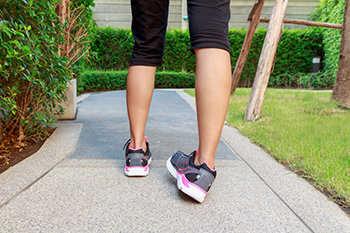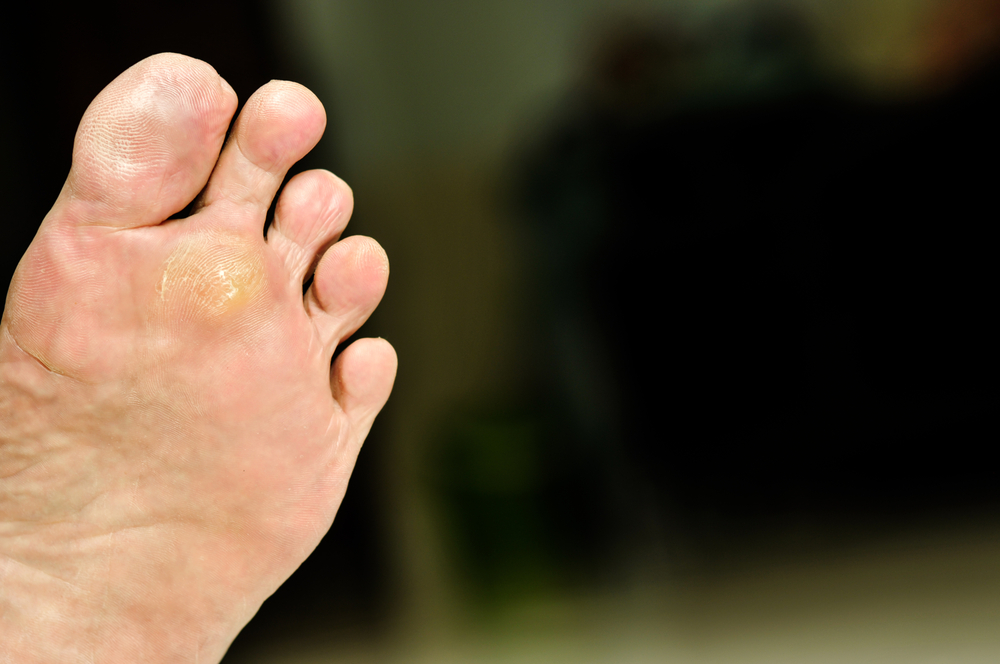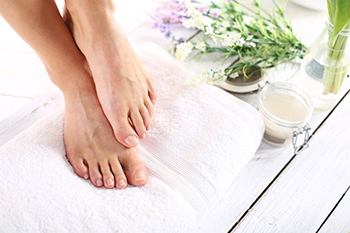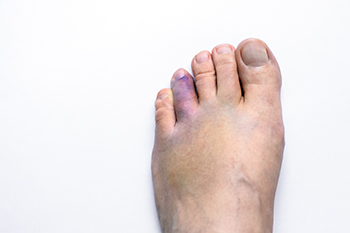Items filtered by date: August 2023
Rehab Exercises for Ankle Sprains

Recovering from an ankle sprain is an important way to prevent lingering weakness and instability in the ligaments. To enhance your ankle's range of motion after a sprain, the ABC's exercise has proved effective. While seated, trace the alphabet with your toes suspended in the air. Flexibility stretches can help by placing a towel under your foot while gently pulling back, feeling a comfortable stretch. Toe curls help to strengthen the toes and foot arch. An effective stretch is done by standing on a smooth surface and scrunching a towel under your foot. Eversion and inversion exercises also help to build ankle strength. While seated in a chair, use a towel to help glide your foot outward and inward with slow, controlled movements to avoid strain. For added strength, toe lifts can be an effective stretch, which is done by gently lifting your toes while keeping your heel grounded. Weight-shifting exercises are beneficial in promoting balance and stability. This is done by gradually shifting your weight from side to side while maintaining proper form. Any of these exercises should be done with your podiatrist’s approval and without causing pain. For more information, it is suggested that you consult this type of doctor for additional stretches for ankle sprains.
Although ankle sprains are common, they aren’t always minor injuries. If you need your ankle injury looked at, contact the foot specialists from Podiatry Associates of Belleville. Our doctors can provide the care you need to keep you pain-free and on your feet.
How Does an Ankle Sprain Occur?
Ankle sprains are the result of a tear in the ligaments within the ankle. These injuries may happen when you make a rapid shifting movement while your foot is planted. A less common way to sprain your ankle is when your ankle rolls inward while your foot turns outward.
What Are the Symptoms?
- Pain at the sight of the tear
- Bruising/Swelling
- Ankle area is tender to touch
- In severe cases, may hear/feel something tear
- Skin discoloration
Preventing a Sprain
- Wearing appropriate shoes for the occasion
- Stretching before exercises and sports
- Knowing your limits
Treatment of a Sprain
In many cases, the RICE method (Rest, Ice, Compression, and Elevate) is used to treat ankle sprains. However, you should see a podiatrist to see which treatment option would work best with your injury. In severe cases, surgery may be required.
It is important to ask your doctor about rehab options after you receive treatment for your injury. Stretching, strength training, and balance exercises may help the ankle heal while also preventing further injury.
If you have any questions, please feel free to contact our office located in Belleville, NJ . We offer the newest diagnostic and treatment technologies for all your foot care needs.
Causes and Effective Treatment of Plantar Warts

Plantar warts are uncomfortable growths on the soles of the feet and can create quite a nuisance. Caused by the human papillomavirus, which is abbreviated HPV, the virus enters the skin through tiny cuts or abrasions. The ideal environment for this to occur is warm and damp, such as swimming pools or communal showers. The pressure from walking or standing can push these warts inward, making them appear flat. While plantar warts can sometimes resolve on their own, treatment is often sought to alleviate pain and prevent their spread. Over-the-counter topical treatments containing salicylic acid may help to gradually dissolve the wart. Medical interventions such as freezing the wart, which is referred to as cryotherapy, or minor surgical removal may be recommended by a podiatrist. If you have developed a plantar wart, it is strongly suggested that you consult with this type of doctor who can guide you toward the treatment method that is right for you.
Plantar warts can be very uncomfortable. If you need your feet checked, contact the foot specialists from Podiatry Associates of Belleville. Our doctors will assist you with all of your foot and ankle needs.
About Plantar Warts
Plantar warts are the result of HPV, or human papillomavirus, getting into open wounds on the feet. They are mostly found on the heels or balls of the feet.
While plantar warts are generally harmless, those experiencing excessive pain or those suffering from diabetes or a compromised immune system require immediate medical care. Plantar warts are easily diagnosed, usually through scraping off a bit of rough skin or by getting a biopsy.
Symptoms
- Lesions on the bottom of your feet, usually rough and grainy
- Hard or thick callused spots
- Wart seeds, which are small clotted blood vessels that look like little black spots
- Pain, discomfort, or tenderness of your feet when walking or standing
Treatment
- Freezing
- Electric tool removal
- Laser Treatment
- Topical Creams (prescription only)
- Over-the-counter medications
To help prevent developing plantar warts, avoid walking barefoot over abrasive surfaces that can cause cuts or wounds for HPV to get into. Avoiding direct contact with other warts, as well as not picking or rubbing existing warts, can help prevent the further spread of plantar warts. However, if you think you have developed plantar warts, speak to your podiatrist. He or she can diagnose the warts on your feet and recommend the appropriate treatment options.
If you have any questions please feel free to contact our office located in Belleville, NJ . We offer the newest diagnostic and treatment technologies for all your foot and ankle needs.
Foot Surgery for Rheumatoid Arthritis May Improve Mobility

Rheumatoid arthritis, abbreviated RA, is a chronic autoimmune condition that can severely impact the joints, including those in the feet. When conservative treatments fail to provide adequate relief, foot surgery becomes a viable option for managing RA and related foot deformities. Surgical procedures aim to correct joint alignment, reduce inflammation, and improve overall foot function. Common surgical interventions for RA in the feet include a synovectomy, which is the removal of the inflamed joint lining, tendon repair or transfer, joint fusion, and joint replacement. It's important to note that foot surgery for RA is considered a last resort when other treatments have proven ineffective. It is beneficial for patients to work closely with their podiatrist to determine the most suitable surgical approach based on individual needs and medical history. While foot surgery may involve a recovery period, it can significantly enhance mobility, reduce pain, and ultimately improve the quality of life for those living with RA. It is suggested that you consult with a podiatrist if this condition affects you.
Foot surgery is sometimes necessary to treat a foot ailment. To learn more, contact the foot specialists of Podiatry Associates of Belleville. Our doctors will assist you with all of your foot and ankle needs.
When Is Surgery Necessary?
Foot and ankle surgery is generally reserved for cases in which less invasive, conservative procedures have failed to alleviate the problem. Some of the cases in which surgery may be necessary include:
- Removing foot deformities like bunions and bone spurs
- Severe arthritis that has caused bone issues
- Cosmetic reconstruction
What Types of Surgery Are There?
The type of surgery you receive will depend on the nature of the problem you have. Some of the possible surgeries include:
- Bunionectomy for painful bunions
- Surgical fusion for realignment of bones
- Neuropathy decompression surgery to treat nerve damage
Benefits of Surgery
Although surgery is usually a last resort, it can provide more complete pain relief compared to non-surgical methods and may allow you to finally resume full activity.
Surgical techniques have also become increasingly sophisticated. Techniques like endoscopic surgery allow for smaller incisions and faster recovery times.
If you have any questions please feel free to contact our office located in Belleville, NJ . We offer the newest diagnostic and treatment technologies for all your foot and ankle needs.
Tips for Foot Care and Maintenance

Our feet are the foundation of our mobility, and practicing everyday foot care is essential for overall well-being. Healthy feet can be maintained when practical tips are followed. It is crucial to wear shoes that fit correctly and have adequate room for the toes to move freely. Daily hygiene can begin with washing the feet daily with soap and water and ensuring they are thoroughly dried to prevent bacterial and fungal infections. The skin can feel good when the feet are frequently moisturized, focusing on the heels and soles. Additionally, ingrown toenails may be prevented when the toenails are trimmed correctly. Foot muscles and flexibility may be improved with regular foot exercises such as toe curls and ankle circles. Excess weight can strain your feet, and maintaining a healthy weight can reduce the risk of foot problems. If you would like more information about effective foot care routines, it is suggested that you consult a podiatrist.
Everyday foot care is very important to prevent infection and other foot ailments. If you need your feet checked, contact the foot specialists from Podiatry Associates of Belleville. Our doctors can provide the care you need to keep you pain-free and on your feet.
Everyday Foot Care
Often, people take care of their bodies, face and hair more so than they do for their feet. But the feet are a very important aspect of our bodies, and one that we should pay more attention to. Without our feet, we would not be able to perform most daily tasks.
It is best to check your feet regularly to make sure there are no new bruises or cuts that you may not have noticed before. For dry feet, moisturizer can easily be a remedy and can be applied as often as necessary to the affected areas. Wearing shoes that fit well can also help you maintain good foot health, as well as making it easier to walk and do daily activities without the stress or pain of ill-fitting shoes, high heels, or even flip flops. Wearing clean socks with closed shoes is important to ensure that sweat and bacteria do not accumulate within the shoe. Clean socks help to prevent Athlete’s foot, fungi problems, bad odors, and can absorb sweat.
If you have any questions please feel free to contact our office located in Belleville, NJ . We offer the newest diagnostic and treatment technologies for all your foot and ankle needs.
Are Bunions Affecting Your Everyday Life?
Treatment Methods for a Broken Toe

A broken toe can be painful. Despite the discomfort it can cause, it is generally not a serious injury. A broken toe can happen from stubbing it into a piece of furniture, or from dropping a heavy object on it. Bruising, swelling, and the inability to walk are common symptoms that can be experienced with a broken toe. A severely broken toe may have a protruding bone, and surgery may be required to align it properly. The buddy taping method is effective in treating toes that are mildly fractured. This is done by taping the affected toe to the toe next to it. This treatment method is generally successful in providing the necessary stability as the healing process occurs. Mild relief may be found if the foot is frequently elevated, which may help to reduce some of the swelling. If you have fractured your toe, it is suggested that you confer with a podiatrist who can diagnose and treat this condition.
Broken toes may cause a lot of pain and should be treated as soon as possible. If you have any concerns about your feet, contact the foot specialists from Podiatry Associates of Belleville. Our doctors will treat your foot and ankle needs.
What Is a Broken Toe?
A broken toe occurs when one or more of the toe bones of the foot are broken after an injury. Injuries such as stubbing your toe or dropping a heavy object on it may cause a toe fracture.
Symptoms of a Broken Toe
- Swelling
- Pain (with/without wearing shoes)
- Stiffness
- Nail Injury
Although the injured toe should be monitored daily, it is especially important to have a podiatrist look at your toe if you have severe symptoms. Some of these symptoms include worsening or new pain that is not relieved with medication, sores, redness, or open wounds near the toe.
If you have any questions, please feel free to contact our office located in Belleville, NJ . We offer the newest diagnostic and treatment technologies for all your foot care needs.
